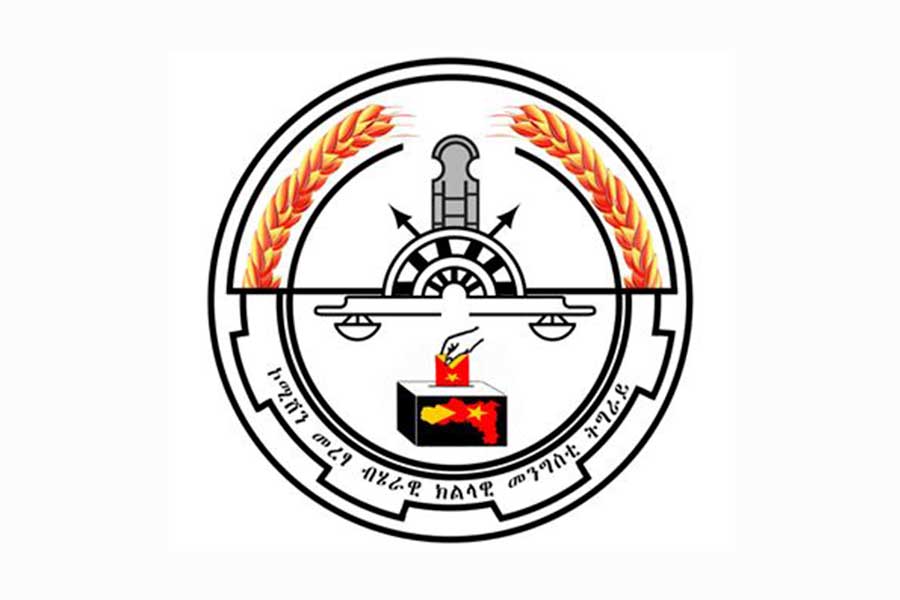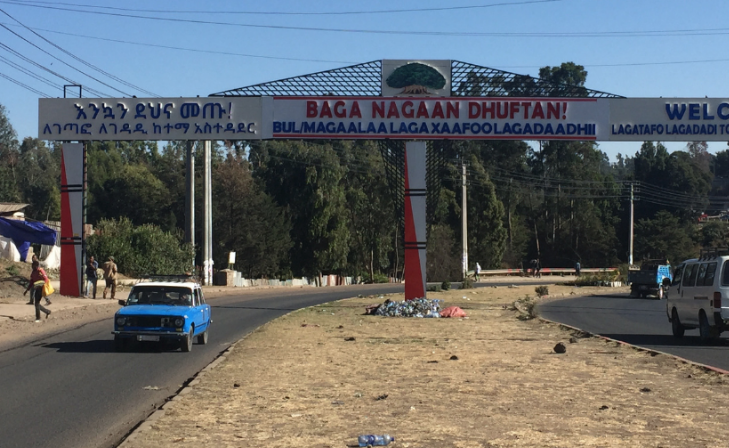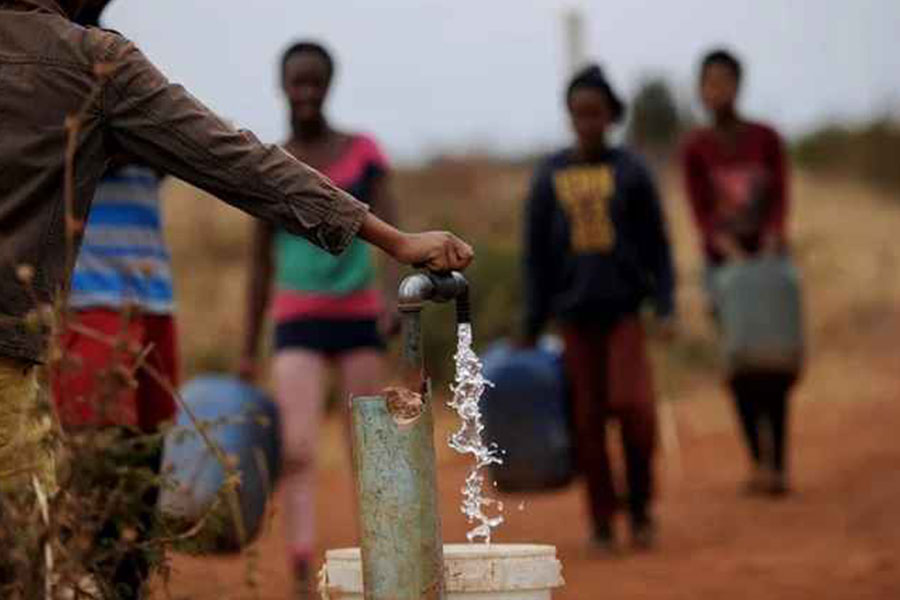
My Opinion | Jul 22,2023
Newly appointed President Taye Atskeselassie delivered his first address to a joint session of the two legislative houses last week, laying out the focus for the fiscal year for Abiy Ahmed's (PhD) administration. With the country at a critical juncture following the recent macroeconomic reforms, he accentuated the economic progress in trade, services, manufacturing, and agriculture.
Taye credited Home-grown Economic Reform 2.0 for these gains and outlined four priorities focused on stabilising the economy, enhancing investment and trade, boosting productivity, and improving government services. To support this program, Abiy's administration expects to receive 27 billion dollars from development partners and international financial institutions.
The President said the economic policy adjustments will contribute to increased exports, expanded domestic manufacturing, and reduced contraband. Merchandise exports grew to 3.8 billion dollars, a 4.8pc increase over the previous year, with hopes of raising that figure to five billion dollars in the fiscal year. Service exports, remittances, and foreign direct investment together brought in 21.5 billion dollars. The country's cultivated land also expanded from 20.3 million to 26.2 million hectares.
Inflation was another area Taye addressed. He credited a tighter monetary policy implemented by the administration that reduced inflation from 29pc in August last year to 17.2pc this year.
Ongoing political tensions across regions have impacted the economy. However, Taye opted for an optimistic outlook on GDP growth and prospects. During the address to the joint legislature, he announced an economic growth rate of 8.1pc for the previous fiscal year. Agriculture contributed 6.9pc to this growth, while manufacturing achieved 9.2pc, with the medium- and large-scale industrial subsector contributing 10.2pc.
Analysts point out that the GDP calculations have been relying on estimated projections rather than real-time data while their accuracy in denoting economic growth is limited. Macro-economist Tewodros Mekonnen (PhD), argues that it is difficult to get accurate results as nearly 42pc of the GDP data used is extrapolated. He cautioned that relying solely on benchmark studies for economic structural reforms can lead to inaccuracy.
Tewodros cited the agriculture sector data, which is based on outdated benchmarks of a census conducted 22 years ago, and warned that relying on such assumptions could distort GDP calculations.
"There is a margin of error," he said.
As the intent behind GDP computation was to guide tax policy and manage government expenditure, Tewodros also raised concerns about public spending, which has led to fiscal imbalances, debt, and corruption.
Ethiopia’s tax-to-GDP ratio of seven percent remains one of the lowest in sub-Saharan Africa, where the average is 15pc. Tewodros acknowledged the positive shift towards tax-based revenue, which can improve accountability and reduce public spending. However, he cautioned against imposing excessive taxes, citing a study that revealed 90pc of tax revenue is collected from only 10pc of taxpayers.
The President said the government plans to secure total revenues of 1.5 trillion Br through wide-ranging tax-collecting improvements and thus reach a tax-to-GDP ratio of 8.3pc this fiscal year. Taye also noted that the previously interrupted direct budgetary support from international partners has returned with six billion dollars expected through the next three years.
Foreign investment is an area the current administration intends to create a more conducive operating environment for, according to President Taye. He assured that the longstanding issue of profit repatriation will be addressed and that investment protections will be strengthened to mitigate political risks. Taye expressed hopes of attracting five billion dollars in foreign direct investment.
Last year, FDI totalled 3.9 billion dollars. He also reported that 395 of the 446 industries closed due to conflicts have resumed operations.
Tourism, a vital sector, saw over 1.1 million visitors, with initiatives like "Dine for Ethiopia" driving growth. Taye noted progress in e-governance, with 737 public services now offered online under the Digital Ethiopia initiative. Meanwhile, civil works on the Grand Ethiopian Renaissance Dam (GERD) are complete, with three percent of the project remaining.
Taye was appointed as the fifth president of Ethiopia, succeeding Sahle-Worq Zewde, the first woman head of state since the existing constitution was ratified in 1995. MP's disclosed they were informed of his nomination in a closed parliamentary session the same morning.
The nomination was approved with five MPs abstaining. Though his role is largely ceremonial, Taye brings years of diplomatic experience, having served as Ethiopia's representative to the United Nations and in various international postings. He served as Ethiopia's permanent representative to the United Nations (UN) starting in 2018 before being named foreign minister. His diplomatic career includes roles as consul general in Los Angeles, assignments in Washington, D.C., Stockholm, and a tenure as ambassador to Egypt.
While Taye's address focused on economic recovery, some MPs were dismayed security issues were overlooked, particularly given the ongoing conflicts in Amhara and Oromia regional states.
Abebaw Desalegn (PhD), a NaMA-MP, challenged the growth projections, citing deteriorating conditions in Gojam, Wollo, and Gonder areas. He noted that most farmers in the region have not been able to cultivate their land. It stood in contrast to the President’s address which points to exported wheat for the second year running, with a total of 230Qtl produced in the last fiscal year.
“Without political stability, economic progress remains precarious,” said Abebaw.
International Monetary Fund (IMF) research depicts that political instability can account for more than half of the negative impact on GDP growth which damages both physical and human capital by focus on short-term issues, hindering the implementation of long-term economic policies that promote sustainable growth. The study suggests that countries need to address political instability, deal with its root causes, and attempt to mitigate its effects on the quality and sustainability of economic policies that are engendering economic growth.
While some opposition MPs noted conflicts, others highlighted service delivery issues. Taye Berta (PhD) of Ezema acknowledged the economic achievements but pointed out gaps in public services. He also raised concerns about the government's reported growth, noting that the rising cost of living and regional instability do not align with these claims.
PUBLISHED ON
Oct 13,2024 [ VOL
25 , NO
1276]

My Opinion | Jul 22,2023

Commentaries | Dec 30,2023

Fortune News | Aug 01,2020

Fortune News | Jun 01,2024

Fortune News | Apr 26,2019

Editorial | Nov 13,2021

Editorial | Dec 26,2020

Fortune News | Apr 22,2023

Fortune News | May 17,2025

Commentaries | Oct 05,2019

Dec 22 , 2024 . By TIZITA SHEWAFERAW
Charged with transforming colossal state-owned enterprises into modern and competitiv...

Aug 18 , 2024 . By AKSAH ITALO
Although predictable Yonas Zerihun's job in the ride-hailing service is not immune to...

Jul 28 , 2024 . By TIZITA SHEWAFERAW
Unhabitual, perhaps too many, Samuel Gebreyohannes, 38, used to occasionally enjoy a couple of beers at breakfast. However, he recently swit...

Jul 13 , 2024 . By AKSAH ITALO
Investors who rely on tractors, trucks, and field vehicles for commuting, transporting commodities, and f...

Oct 25 , 2025
The regulatory machinery is on overdrive. In only two years, no fewer than 35 new pro...

Oct 18 , 2025
The political establishment, notably the ruling party and its top brass, has become p...

Oct 11 , 2025
Ladislas Farago, a roving Associated Press (AP) correspondent, arrived in Ethiopia in...

Oct 4 , 2025
Eyob Tekalegn (PhD) had been in the Governor's chair for only weeks when, on Septembe...